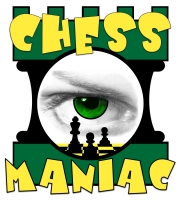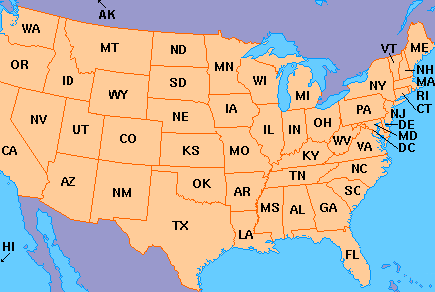US-Chess Clubs: CHESS-PLAYING TO-DAY (PART I)

Chess is generally regarded by the uninitiated as being the dullest and most selfish of games, an opinion which is by no means carefully withheld from the players themselves. Truly, as an amusement or a mirth-provoking pastime it does leave something to be desired, and even such a remark as "Just look at them, they have been sitting there for hours without speaking!" is often perfectly justified. It is hard to say why a quiet and unobtrusive demeanor should evoke sarcastic comment, but most chess-players become well accustomed to it, and after all the game survives. And not only does it survive, it gains in popularity year by year, and the extent to which it is played to-day as compared with ten years ago is most remarkable. Wherein does its fascination lie?
For one thing, chess has the reputation of being an intellectual game, and who does not like to be the follower of that which is intellectual? It is, moreover, one of the few games in which the players find themselves on a perfectly equal footing at the start. The element of chance does not enter in; the one who plays best wins. Further, though much has been said to the contrary, the game played in moderation is a real recreation. Mr. Potter, writing in the "Encyclopaedia Britannica," puts this very well. He says it "recreates not so much by way of amusement, properly so termed, as by taking possession of the mental faculties and diverting them from their accustomed grooves." Anyone who knows what it is to have a mind worried by business or harassed by care of any description can understand the value of a pastime which can do that.
But all these are the move subtle attractions to the game. The one supreme attraction is the inexhaustible beauty of the game itself. The writer has often been asked: "Don't you find that you continually repeat games you have played before?" Well, it has been computed that there are 318,979,564,000 possible ways of playing the first four moves on each side, and, play as often as you will, it is not likely that there will be much sameness about your games. A calculation as to the number of ways of playing the first ten moves on each side--less than one-third of an ordinary game--yields a modest total of thirty figures, which would convey nothing but bewilderment to the average mind. But put in another way we can dimly perceive their significance. "Considering the population of the world to be 1,483,000,000" (twenty years ago), "more than 217,000,000,000 of years would be needed to go through them all, even if every man, woman and child on the face of the globe played without cessation at a rate of one set of ten moves per minute." (Mr. Edwyn Anthony in the "Chess-Players' Chronicle," 1878). Further comment on the inexhaustibility of the game is perhaps superfluous.
On the beauty of chess it is difficult to speak with sufficient reverence. It has had at least a thousand years in which to develop, and no player regards it otherwise than as perfect. The keen delight with which a hot attack is repelled is only exceeded by that which follows the discovery of a weak point in your opponent's defence, and by the joy of concentrating an attack upon that weak point and of pushing it to a triumphant issue. Only those who know can understand!
No wonder that a game with such a character should be ardently practised all the year round in one way or another by players of every degree. For those who are fortunate enough to find an opponent in the home circle, what better pastime can there be? For those who can seldom find an adversary, there is the delight of problem solving, or the even more useful study of some published game. Others again can fight a distant opponent b correspondence; while for those who wish to do battle more promiscuously, there are chess clubs and resorts innumerable.
To such an extent has chess developed in popularity during the last ten years that the number of recognized chess clubs in London is about three times what it was in 1887, and cannot now be far short of 120. This is without reckoning the numerous chess clubs which form adjuncts to various institutions, such as political clubs, working men's clubs, church institutes and the like. And London does not stand alone in this respect. In the provinces a similar increase has taken place, the number of clubs having risen from 180 in 1887 to at least 420 in 1897. An equally significant fact is that the average membership has also rapidly grown, showing that the new clubs have been called into existence by the popular demand.
In the early eighties there was very little inter-club organization either in London or the provinces. In the metropolis a few club matches were played, but the only one of much importance was the annual encounter between the St. George's and the City of London Clubs. Then the offer of a cup, called the Baldwin-Hoffer trophy, after its donors, induced six or seven of the stronger suburban clubs to enter into rivalry one with another. This was followed by the institution of the Surrey trophy, to be competed for by the Surrey clubs only. These competitions infused new life into the clubs, and developed a desire for regular inter-club competition within the metropolitan area. This was duly arranged in 1888, the clubs being divided into two classes, senior and junior. Five years later a still further step was taken by the formation of the London Chess League, and the organization of a yearly contest to be played in three divisions, A, B, C. The clubs in the A division have to furnish teams of twenty players, in the B division twelve, and in the C division eight. This competition has proved to be a great success, and in the present season, 1897-8, no fewer than thirty-three clubs are taking part. Naturally the interest centres round the struggle for supremacy in the A division, where the chess played is of a very high order, many of the games on the top boards being worthy of the foremost masters.
To be continued...
--------------------------------------------------------------------------------
About the Author
This article by J. Arnold Green is from the journal, THE LIVING AGE (Sixth Series, Volume XVIII, April, May, June, 1898), which is in the public domain.
Play Online Chess Free!




0 Comments:
Post a Comment
Links to this post:
Create a Link
<< Home